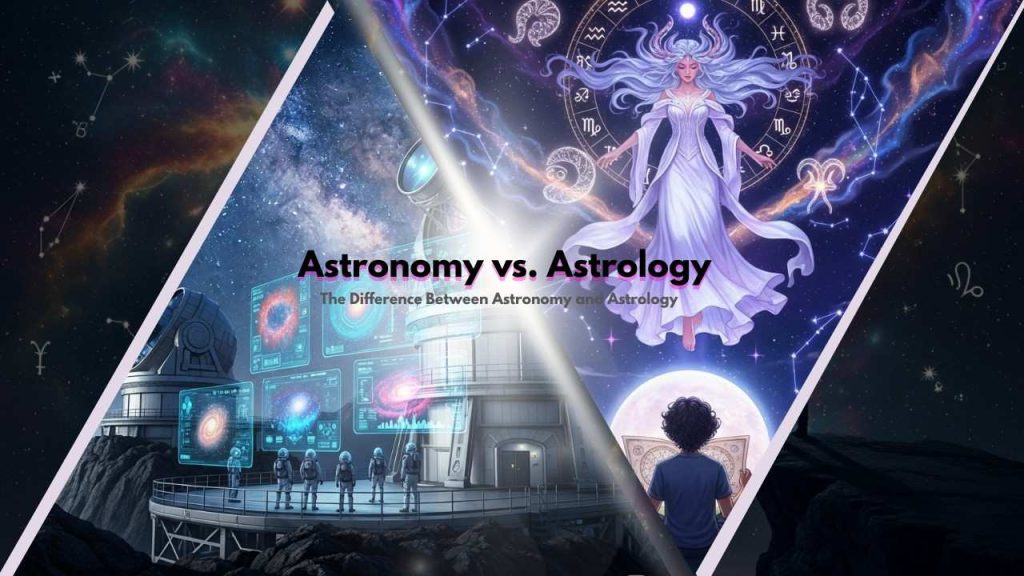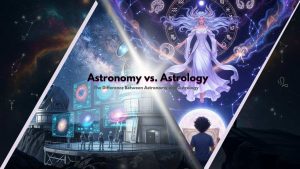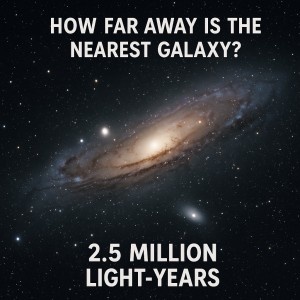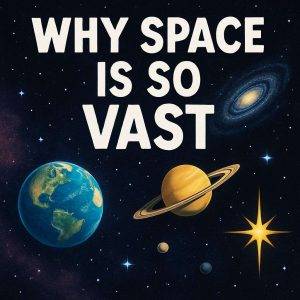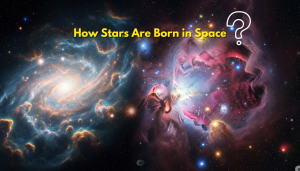The Difference Between Astronomy and Astrology
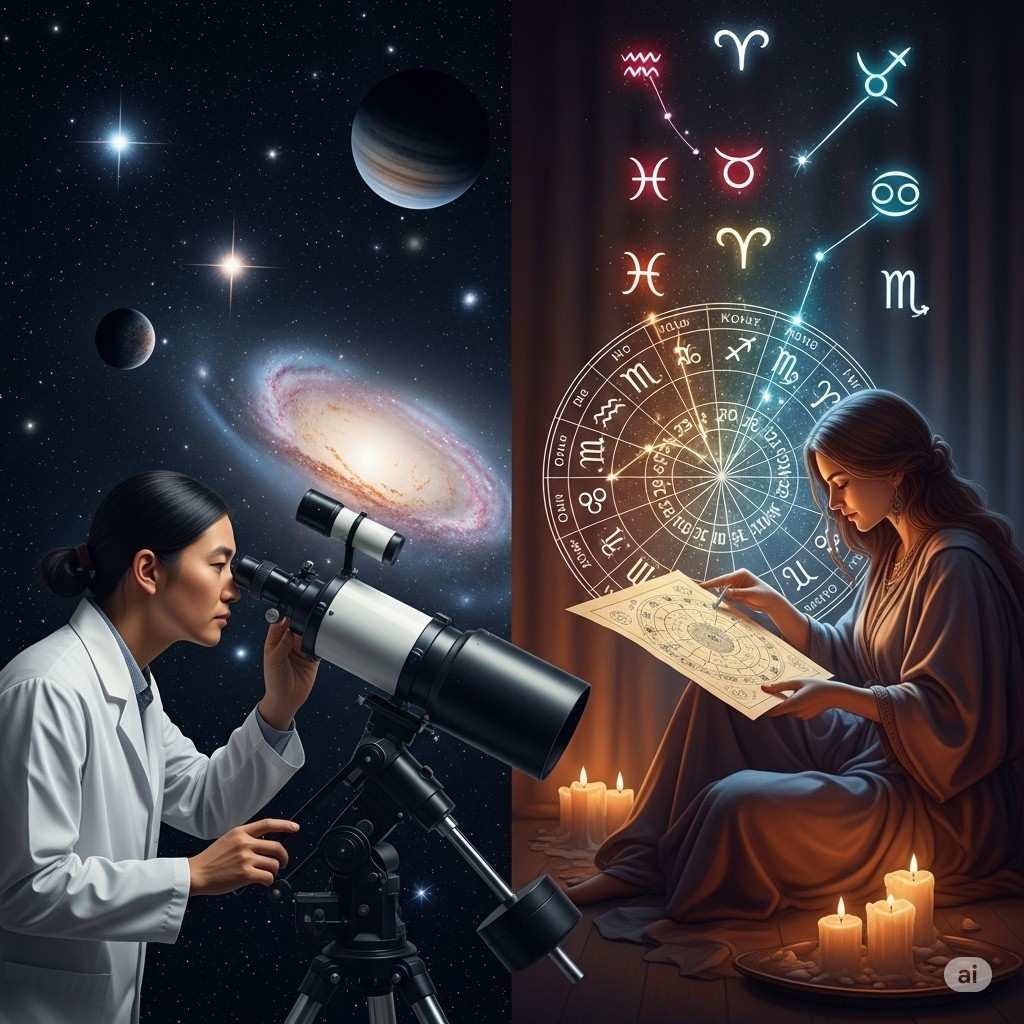
While the two terms are often confused or used interchangeably, they represent very different disciplines — one is a science based on observation and evidence, while the other is a belief system rooted in interpretation. In this article, we’ll explore the difference between astronomy and astrology, highlighting their history, methods, and importance in today’s world.
What is Astronomy? | Astronomy and Astrology
Astronomy is the scientific study of celestial bodies such as stars, planets, galaxies, and the universe as a whole. It relies on mathematics, physics, and chemistry to understand how the cosmos works. Modern astronomers use powerful telescopes and satellites to collect data, observe astronomical phenomena, and make discoveries about space.
- Field Type: Science
- Tools Used: Telescopes, satellites, data analysis
- Goals: Understand the origins, structure, and evolution of celestial bodies and the universe
Understanding the difference between astronomy and astrology begins with recognizing that astronomy is backed by empirical evidence, peer-reviewed research, and scientific principles.
What is Astrology? | Astronomy and Astrology
Astrology, on the other hand, is a belief system that suggests that the positions and movements of celestial bodies can influence human behavior and personality. It involves creating horoscopes based on the positions of stars and planets at the time of a person’s birth.
- Field Type: Pseudoscience or metaphysical system
- Tools Used: Birth charts, planetary positions
- Goals: Predict human traits, relationships, and events based on celestial alignments
When comparing the difference between astronomy and astrology, it’s clear that astrology lacks the scientific foundation that astronomy has. Astrology is interpretive and symbolic rather than evidence-based.
Key Differences Between Astronomy and Astrology
| Feature | Astronomy | Astrology |
| Basis | Science | Belief system |
| Method | Observation, experimentation | Interpretation, symbolism |
| Tools | Telescopes, data, mathematical models | Horoscopes, astrological charts |
| Purpose | Study the universe | Guide personal decisions |
| Evidence | Empirical, peer-reviewed | Anecdotal, tradition-based |
Understanding the difference between astronomy and astrology helps clarify their roles in society — one helps launch satellites and discover black holes, while the other offers guidance and personality insights.
Why People Confuse Astronomy with Astrology | Astronomy and Astrology
The main reason many people mix up the difference between astronomy and astrology is historical. In ancient times, both were closely linked. Early astronomers were often astrologers, using their knowledge of the skies for both scientific and spiritual purposes.
However, as science advanced, astronomy evolved into a rigorous academic discipline.
Which One Should You Trust? Astronomy and Astrology
When it comes to factual understanding of the universe, astronomy is the trusted field. It contributes to scientific advancements, GPS technology, space exploration, and much more.
Astrology, while not scientific, still holds cultural and emotional significance for many. People often turn to astrology for insight into their lives, relationships, and emotions. While it’s not grounded in evidence, it continues to be a popular practice.
Ultimately, understanding the difference between astronomy and astrology allows you to appreciate what each field offers — science versus symbolism, data versus destiny.
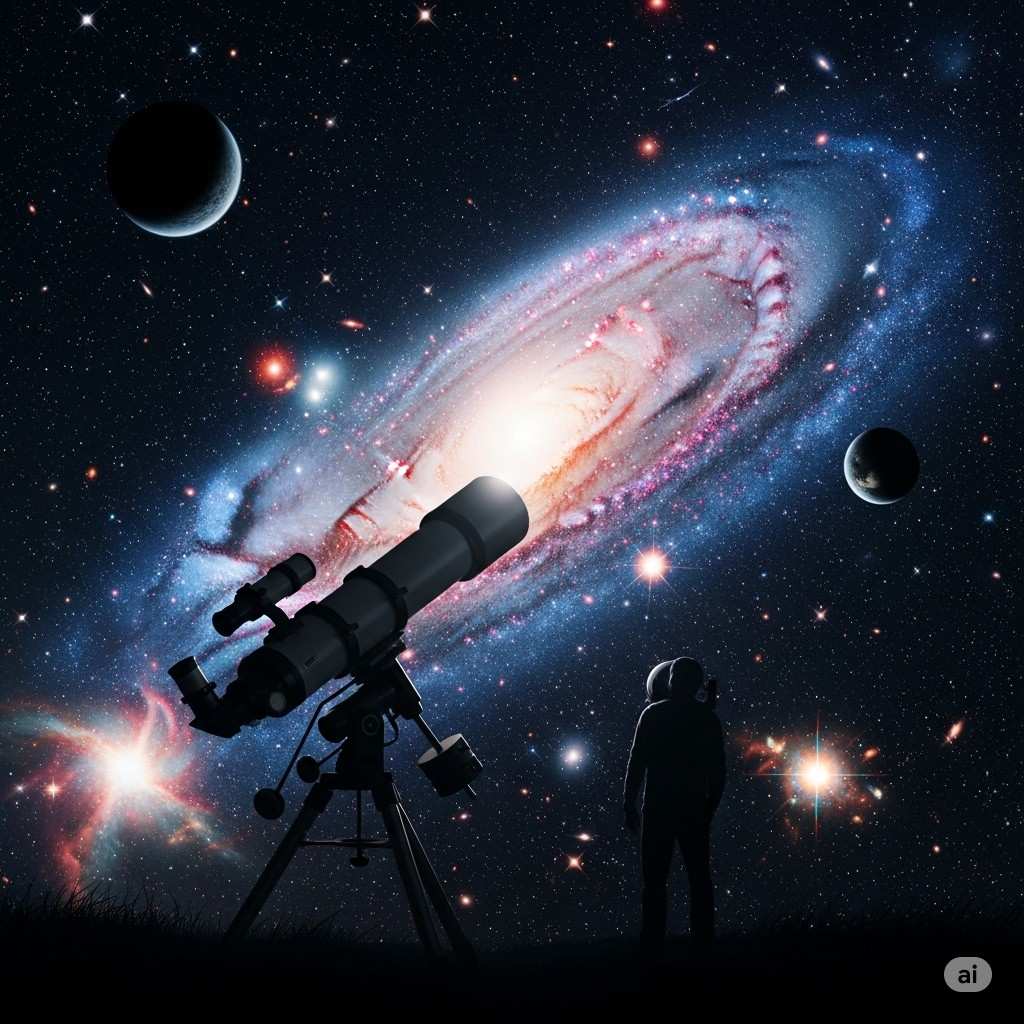
The Difference Between Astronomy and Astrology
In today’s cosmic conversations, people often confuse the difference between astronomy and astrology. While they both deal with celestial bodies, the two fields are fundamentally different in purpose, method, and value to science.
In this article, we will explore the difference between astronomy and astrology, helping you understand how one relies on scientific evidence while the other is grounded in symbolism and interpretation.
What is Astronomy? | Astronomy and Astrology
Astronomy is a natural science that studies celestial objects like stars, planets, galaxies, and the universe as a whole.
Key Features of Astronomy:
- Based on observation, experimentation, and peer-reviewed research.
- Uses telescopes and satellites to collect data.
- Studies everything from black holes to the Big Bang.
- Predicts phenomena like eclipses and planetary motion.
Astronomy helps humanity expand its understanding of the universe through real evidence and scientific reasoning.
What is Astrology? | Astronomy and Astrology
It uses birth charts and zodiac signs to provide personal insights and predictions.
Key Features of Astrology:
- Based on symbolic meanings of celestial events.
- Uses planetary positions at the time of birth.
- Interprets life patterns, compatibility, and personality traits.
- Not supported by scientific evidence.
Though astrology has cultural and historical significance, it is not recognized as a science by the academic community.
The Scientific Divide: Astronomy vs. Astrology | Astronomy and Astrology
The most important aspect of the difference between astronomy and astrology lies in their methodology. Astronomy is rooted in data, measurement, and verifiable facts. Astrology is interpretative and subjective, often lacking in testable predictions.
| Aspect | Astronomy | Astrology |
| Foundation | Science | Belief system |
| Tools Used | Telescopes, satellites, software | Ephemeris, natal charts |
| Evidence | Observable and testable | Symbolic and anecdotal |
| Recognition | Academic and scientific | Cultural and entertainment-based |
Why the Confusion Exists
Many confuse the difference between astronomy and astrology due to their shared historical roots. In ancient times, astronomy and astrology were often practiced together. Early astronomers, such as Ptolemy, were also astrologers. However, as scientific methods evolved, the two disciplines split, with astronomy aligning with empirical research and astrology remaining interpretative.
Who is Called the Father of Astrology? | Astronomy and Astrology
When we explore the rich history of the stars, one name often rises above others—Claudius Ptolemy. Widely regarded as the father of astrology, Ptolemy’s work laid the foundation for much of modern astrological thought. To understand his influence, we must also consider the difference between astronomy and astrology, since both fields were once closely intertwined.
Claudius Ptolemy – The Father of Astrology
His most influential work, the Tetrabiblos, systematically detailed astrological principles that are still referenced today.
Key Contributions:
- Authored Tetrabiblos, considered the cornerstone of Western astrology.
- Linked planetary motion to human behavior and destiny.
- Integrated astronomical data into astrological practice.
Although Ptolemy also made significant contributions to astronomy through his Almagest, it’s his Tetrabiblos that earned him the title “father of astrology.”
Astrology in Ancient Times
In ancient civilizations, the roles of astronomers and astrologers often overlapped. This historical blur is part of the difference between astronomy and astrology. While today astronomy is a recognized science, astrology remains a metaphysical or symbolic belief system.
Ancient Babylonians, Egyptians, and Greeks observed the stars to predict seasons and interpret omens.
The Difference Between Astronomy and Astrology
| Factor | Astronomy | Astrology |
| Scientific Basis | Empirical and evidence-based | Symbolic and interpretive |
| Recognition | Scientific discipline | Considered a pseudoscience |
| Objective | Understand the universe | Understand human life through stars |
| Example Contributor | Galileo Galilei | Claudius Ptolemy |
Despite being the father of astrology, Ptolemy contributed to both fields before they officially diverged.
Why Ptolemy’s Role Matters Today
In modern times, many confuse the difference between astronomy and astrology, especially with the rise of online horoscopes and pop culture references. Ptolemy’s legacy helps us see where the two disciplines once merged and where they diverge.
- His astronomical observations aided celestial navigation and scientific progress.
- His astrological theories influenced spiritual and cultural beliefs for centuries
Understanding who is called the father of astrology also helps modern readers appreciate the evolution of these fields.
Are Zodiacs Astrology or Astronomy?
Zodiac signs are everywhere—from horoscopes in newspapers to birth chart apps on your phone. But a common question people ask is: Are zodiacs astrology or astronomy? The answer lies in understanding the difference between astronomy and astrology, a distinction that reveals the origin and purpose of zodiac signs.
The Origin of the Zodiac Signs
The zodiac is a belt of the sky divided into twelve 30-degree segments, each named after the constellation that originally appeared in that section. These segments form the twelve zodiac signs: Aries, Taurus, Gemini, and so on.
Where It Started:
- Rooted in Babylonian astronomy over 2,500 years ago.
- Later adopted by Greek astrologers, including Ptolemy.
While zodiacs were originally part of early sky observation—which was considered primitive astronomy—they became the foundation of astrology, not modern science.
Zodiacs Belong to Astrology, Not Astronomy | Astronomy and Astrology
So, are zodiacs astrology or astronomy? The short answer: zodiacs are part of astrology.
Astrology uses zodiac signs to interpret personality traits, relationships, and life events based on the position of celestial bodies at your birth.
Astronomy, however, is a science that studies celestial objects and phenomena with no focus on human meaning or symbolism.
Understanding this leads us back to the difference between astronomy and astrology, which is both fundamental and fascinating.
The Difference Between Astronomy and Astrology
Let’s clarify this crucial difference to better understand where zodiacs fall:
| Category | Astronomy | Astrology |
| Definition | Scientific study of celestial bodies | Interpretive system connecting stars to human life |
| Methodology | Data-driven, observable, mathematical | Symbolic, intuitive, interpretive |
| Zodiac Usage | Recognizes constellations but not meanings | Uses zodiac signs for horoscopes and insights |
| Academic Status | A physical science | Considered a pseudoscience |
Though both astronomy and astrology involve celestial bodies, the difference between astronomy and astrology lies in intent. Astronomy seeks truth about the universe. Astrology seeks meaning for human life.
Who is the Father of Indian Astronomy?
His remarkable insights into planetary motion, eclipses, and timekeeping laid the foundation for Indian astronomical studies.
But to fully appreciate Aryabhata’s contributions, it’s essential to understand the difference between astronomy and astrology—two disciplines that often overlap in history but differ greatly in purpose and method.
Aryabhata – A Cosmic Visionary
Born in 476 CE, Aryabhata was a brilliant mathematician and astronomer whose work revolutionized the way ancient India understood the cosmos.
Key Contributions:
- Authored the Aryabhatiya, a seminal text in both mathematics and astronomy.
- Explained the rotation of the Earth on its axis.
- Accurately calculated solar and lunar eclipses using scientific methods.
- Estimated the value of π (pi) and the length of the solar year with surprising accuracy.
While his work sometimes referenced astrological concepts due to the era he lived in, Aryabhata’s focus was scientific and data-driven, making him a central figure in Indian astronomy, not astrology.
Ancient India’s Dual Legacy
In ancient India, astronomy and astrology were often studied together under the umbrella of Jyotisha. However, these disciplines served different purposes. To grasp Aryabhata’s place in history, we must understand the difference between astronomy and astrology.
The Difference Between Astronomy and Astrology
Let’s break it down to see where these fields part ways:
| Aspect | Astronomy (as practiced by Aryabhata) | Astrology (Jyotish Shastra) |
| Purpose | To observe, measure, and explain celestial phenomena | To predict human affairs based on celestial positions |
| Method | Scientific, mathematical, observational | Symbolic, belief-based, interpretive |
| Status | Recognized science | Cultural belief system |
| Example Contribution | Earth’s rotation, eclipse prediction | Daily horoscopes, kundli (birth charts) |
Understanding the difference between astronomy and astrology helps us see why Aryabhata’s legacy is scientific in nature, despite astrology’s strong presence in Indian culture.
Aryabhata vs. Astrologers of His Time
Many Indian scholars practiced both astronomy and astrology, but Aryabhata stood out for rejecting superstitions and focusing on evidence. Unlike astrologers who interpreted celestial events for predictions, Aryabhata used mathematics and observation to explain planetary behavior.
This clearly illustrates the difference between astronomy and astrology, especially in ancient India.
Legacy of Indian Astronomy | Astronomy and Astrology
Thanks to pioneers like Aryabhata, India made lasting contributions to the global understanding of space and time. His work influenced later scientists, including Bhaskara I and Brahmagupta.
Even today, Aryabhata is honored with:
- Numerous institutes and awards in science bearing his name
His legacy reminds us how important it is to distinguish the difference between astronomy and astrology—especially in a culture where both coexisted for centuries.
👑 Who is the King of Astrology? Unveiling the Greatest Minds in the Celestial Art
Meta Description:
Wondering who is known as the king of astrology? Explore the legendary astrologers from history, their timeless influence, and how they shaped the stars’ interpretations in various cultures.
Who is the King of Astrology?
Astrology, a centuries-old practice of interpreting the movement of celestial bodies to gain insights into human life, has captivated minds around the world. From ancient Mesopotamia to modern horoscope apps, astrology has evolved significantly. But when it comes to greatness in this field, a popular question arises: Who is the king of astrology?
While there isn’t a universally agreed-upon “king,” several historical and spiritual figures are often considered royalty in the astrological world—based on their influence, writings, and accuracy in celestial prediction.
In Western traditions, Claudius Ptolemy is often hailed as the “king” or father of astrology. He lived during the 2nd century CE in Alexandria, Egypt—a hub of knowledge and science at the time.
Why Ptolemy Deserves the Title:
- He authored the Tetrabiblos, one of the most important texts in classical astrology.
- Ptolemy systematized astrology with logical rules and planetary interpretations.
- He bridged astronomical calculations with astrological insights, giving his work scientific credibility in ancient times.
His writings influenced not only Western astrology but also Islamic, Indian, and medieval European traditions. To this day, Ptolemy’s interpretations form the basis for much of modern astrology.
Varahamihira – The King of Indian Astrology
In Vedic or Indian astrology (Jyotish Shastra), one name stands out above the rest: Varahamihira (505–587 CE). He was a brilliant astrologer, astronomer, and polymath during the Gupta Empire—an era considered the golden age of Indian science.
Varahamihira’s Achievements:
- Wrote Brihat Samhita, an encyclopedia covering planetary movements, eclipses, weather forecasting, and omens.
- Authored Pancha-Siddhantika, comparing five major astronomical systems of the time.
- His predictions were incredibly accurate, earning him the reputation of royal astrologer in Emperor Vikramaditya’s court.
Due to his precision and broad influence, many refer to Varahamihira as the king of astrology in India.
The King Archetype – Is There Only One?
Astrology is deeply cultural, and depending on the region, different figures are considered “kings” of astrology:
| Region | “King” of Astrology | Key Contributions |
| Western World | Claudius Ptolemy | Tetrabiblos, geocentric model, planetary rulership |
| India | Varahamihira, Parashara | Vedic astrology texts like Brihat Samhita, Brihat Parashara Hora Shastra |
| Islamic World | Al-Biruni | Integrated Indian and Greek astrology, accurate ephemerides |
| China | Emperor Huangdi (mythological) | Huangdi Neijing and development of Chinese astrology |
This shows that the title “king of astrology” may be symbolic, reflecting mastery, influence, and accuracy in a particular astrological tradition.
The Spiritual Side – Astrology and Divinity
In certain traditions, astrologers themselves are not seen as the “kings” of astrology—but rather, celestial deities or planets are worshipped as the ruling forces.
For example:
- In Hinduism, Lord Shani (Saturn) is feared and revered as the planet with the strongest karmic impact.
- In ancient Roman astrology, Jupiter (Zeus) was considered the most regal and benevolent of the planets.In Chinese astrology, the Heavenly Emperor is believed to rule the cosmic order.
So in these cases, the “king” of astrology may be a divine force, not a mortal astrologer.
Modern-Day Kings of Astrology | Astronomy and Astrology
In recent times, several astrologers have achieved fame through publications, media appearances, and accurate predictions. While they might not be “kings” in the traditional sense, they have popularized astrology in the modern era:
Notable Modern Astrologers:
- Linda Goodman – Brought astrology into pop culture with her bestseller Sun Signs.
- B. V. Raman – Revived Indian astrology in the 20th century, writing over 50 authoritative books.
- Susan Miller – Known for her online horoscopes with global readership.
- K. N. Rao – An influential Vedic astrologer respected for teaching and accurate chart analysis.
While none of them may hold the historic weight of Ptolemy or Varahamihira, they play a crucial role in shaping contemporary astrological understanding.
So, Who Really is the King of Astrology?
If we’re talking about long-standing influence, Claudius Ptolemy and Varahamihira are two of the most deserving candidates for the title “King of Astrology.”
However, the answer depends on context:
- For Western traditions: Ptolemy
- For Vedic astrology: Varahamihira
- For spiritual traditions: Planetary deities like Shani or Jupiter
- For popular media: Authors like Linda Goodman or B.V. Raman
🌌 Is Astrology Based on God?
Short Answer:
Astrology is not directly based on God in the way that religious doctrines are, but it often intersects with spiritual beliefs, divine forces, and interpretations of cosmic order. Whether astrology is “based on God” depends on the cultural and religious context in which it’s practiced.
📜 1. Astrology Is Not a Religion
Astrology is a system of interpreting the influence of celestial bodies (like planets and stars) on human life. It does not worship a god, define moral laws, or claim divine commandments like major religions do (e.g., Christianity, Islam, Hinduism).
It is:
A symbolic, interpretive system.
Used for guidance, self-reflection, and prediction.
Not based on a single deity or scripture.
However, astrology often borrows from religious or spiritual concepts to give deeper meaning to its insights.
🌍 2. Astrology in Different Religious and Cultural Contexts
➤ Hindu/Vedic Astrology (Jyotish Shastra):
Deeply spiritual and integrated with Hindu beliefs.
The planets (Navagrahas) are seen as divine beings or extensions of God.
Used alongside rituals, pujas, and temple worship.
➡️ So in Hinduism, astrology is tied to God and spiritual practices.
➤ Western Astrology (Hellenistic Roots):
Originated in Babylon and was refined by Greek philosophers like Ptolemy.
Influenced by mythology (e.g., Roman gods linked to planets like Mars, Venus).
Often used without reference to a supreme being.
➡️ In modern Western practice, astrology is more secular or symbolic, not God-based.
➤ Islam and Christianity:
Islam largely rejects astrology as haram (forbidden) since it may compete with trust in God’s will.
Christianity, particularly in conservative denominations, also discourages astrology for similar reasons.
➡️ In monotheistic Abrahamic religions, astrology is not considered based on God and often seen as contrary to faith.
🔭 3. Is Astrology Spiritual?
Yes—many people use astrology as a spiritual tool. It can:
Help with self-awareness and growth.
Provide a sense of universal connection.
Be integrated with meditation, energy work, and intuition.
But it doesn’t require belief in any specific god or deity. Some astrologers are religious, others are completely secular.
🚀 Does NASA Believe in Astrology?
Meta Description:
Does NASA believe in astrology? Find out the space agency’s official stance and the scientific difference between astrology and astronomy.
Does NASA Believe in Astrology?
If you’ve ever scrolled through horoscopes or explored zodiac signs, you might have wondered what space scientists think about astrology. Does NASA believe in astrology? The short and clear answer is: No, NASA does not believe in astrology.
NASA is a scientific organization focused on space exploration, astrophysics, and technological research. Astrology, on the other hand, is not a science—it is a belief system based on interpreting the positions of celestial bodies as having influence on human lives.
Let’s break this down.
What Does NASA Actually Do?
NASA (National Aeronautics and Space Administration) is the U.S. government agency responsible for:
- Earth and planetary science
- Space telescopes and satellite research
- Robotic exploration of Mars and beyond
Their work is grounded in the scientific method—using observation, hypothesis, experimentation, and evidence to understand the universe.
What Is Astrology? | Astronomy and Astrology
Key traits of astrology:
- Uses birth charts and zodiac signs
- Common in daily horoscopes
- Based on symbolic meanings, not scientific measurements
- Not considered science by the academic or scientific community
NASA’s Official Stance on Astrology
NASA does not endorse, practice, or teach astrology. The organization often emphasizes the distinction between astronomy (a science) and astrology (a belief system).
In fact, on their official website and educational content, NASA has stated:
“Astrology is not astronomy. Astronomy is the scientific study of everything in outer space. Astrology is something else. It’s not science.”
NASA explains that while astrology was once used in ancient cultures to understand the cosmos, it is no longer considered a valid scientific field.
Why the Confusion?
Historically, they were closely linked—early astronomers were also astrologers. Over time, however, astronomy evolved into a science, while astrology remained interpretive and symbolic.
People may also misinterpret NASA’s educational materials. For example:
- NASA has explained the 13th zodiac sign (Ophiuchus) from an astronomical perspective, but not as an astrological belief.
- These discussions are often misunderstood as NASA “changing” astrology, which is not the case.
Does NASA Study Zodiac Signs?
NASA studies constellations and celestial movements, which are used in astrology—but from a scientific, observational standpoint.
They don’t assign meaning to zodiac signs. For example:
- NASA can track the movement of the Sun through the sky.
- They can explain that due to the Earth’s axial wobble (precession), the constellations shift over time.
- But they do not claim these positions affect your personality or life path.
The Science Behind the Stars
Let’s be clear: NASA doesn’t need to “believe” in astrology—because belief is not how science works. NASA is evidence-based, and astrology lacks the kind of repeatable, testable evidence required to be considered a science.
Scientific fields associated with NASA include:
- Astronomy
- Astrophysics
- Planetary science
- Cosmology
None of these fields involve interpreting star signs or horoscopes.
🌙 Do Muslims Believe in Astrology? | Astronomy and Astrology
Short Answer:
In Islam, belief in astrology is generally considered forbidden (haram). While some cultural practices may include elements of astrology, mainstream Islamic teachings reject it as incompatible with the core belief in Tawheed (the oneness of God) and divine decree (Qadar).
📖 What Does Islam Say About Astrology?
Islam draws a clear distinction between astronomy (the science of celestial bodies) and astrology (the belief that stars and planets influence human fate).
Astrology is rejected in Islam because:
- It suggests that celestial objects have power over human destiny, which contradicts belief in Allah’s ultimate control over all things.
- It often involves fortune-telling, which is prohibited in Islam.
- It can mislead believers and undermine their trust in du’a (prayer), divine will, and reliance on God (tawakkul).
🕌 Evidence from Islamic Sources
🌟 Qur’an:
While the Qur’an encourages reflection on the stars and heavens as signs of God’s creation (e.g., Surah Al-Mulk 67:5, Surah Al-An’am 6:97), it does not support using them to predict the future or influence human affairs.
🌟 Hadith (Sayings of the Prophet Muhammad ﷺ):
. The more he increases in that, the more he increases in sin.”
— (Abu Dawood, Hadith 3905)
— (Musnad Ahmad, Hadith 9535)
These hadiths show that astrology is often categorized with sihr (magic), which is strongly condemned in Islam.
🧠 Difference Between Astronomy and Astrology in Islam
| Concept | Astronomy (Ilm al-Falak) | Astrology (Ilm al-Nujum) |
| Status in Islam | Permitted and encouraged (for navigation, prayer timing) | Forbidden (linked to fortune-telling, shirk) |
| Basis | Scientific observation | Belief-based, non-scientific |
| Use | Finding Qibla, moon sighting, seasons | Predicting life events, personality, fate |
🌍 Cultural vs. Religious Practice
In some Muslim-majority cultures, horoscopes, star signs, and zodiac beliefs are still found—especially in popular media or traditional rituals. However, these practices are cultural, not religious, and many scholars warn against them.
minor forms of shirk (associating partners with Allah).
✅ What Is Allowed in Islam?
- Studying astronomy for scientific, navigational, or religious purposes (like determining prayer times or the lunar calendar) is not only allowed but encouraged.
- Reflecting on the stars as signs of God’s greatness is seen as a form of spiritual reflection (tadabbur).
✝️ Did Jesus Believe in Astrology?
Short Answer:
In fact, the teachings attributed to Jesus in the New Testament do not endorse astrology, and biblical scripture generally discourages divination, star-gazing, and predicting the future based on celestial events.
📖 What Is Astrology? | Astronomy and Astrology
It was widely practiced in ancient cultures, including Babylon, Egypt, Greece, and Rome.
🕊️ What Did Jesus Teach?
In the New Testament, Jesus focused on:
- Love for God and neighbor.
- Spiritual transformation.
- The Kingdom of God.
- Trust in divine providence, not fate or the stars.
There are no recorded teachings where Jesus refers to astrology, zodiac signs, or the use of stars for personal predictions. His guidance always points to faith in God rather than the natural world for determining the course of life.
📜 What Does the Bible Say About Astrology?
While the Bible doesn’t mention Jesus directly rejecting astrology, the Old Testament, which Jesus followed as a practicing Jew, condemns astrological practices.
Notable verses:
- Isaiah 47:13-14 (NIV):
“Let your astrologers come forward, those stargazers who make predictions month by month… Surely they are like stubble; the fire will burn them up.” - Deuteronomy 18:10-12 (NIV):
These verses reflect a consistent biblical theme: do not seek guidance from stars, omens, or magic—only from God.
🌠 What About the Star of Bethlehem?
Some people point to the Star of Bethlehem, which guided the wise men (Magi) to the birthplace of Jesus, as an astrological moment.
But it’s important to note:
- The Magi were not Jews or followers of Jesus—they were likely astrologers or priests from the East (perhaps Persia or Babylon).
- The Star of Bethlehem is seen by Christians as a divine sign, not an endorsement of astrology.
Jesus himself was a child at the time and made no comment about the star in adulthood.
✨ Do Zodiac Signs Determine Belief in God?
Short Answer:
Zodiac signs do not determine religious belief or faith in God. Belief in God is influenced by culture, upbringing, personal experience, and spiritual journey, not astrology. However, some astrologers associate certain zodiac signs with spiritual tendencies, which can loosely relate to how open a person might be to religious or metaphysical beliefs.
🧿 Astrological Signs Most Associated with Spiritual Belief
While no zodiac sign is inherently more “religious” or believing in God, some signs are often described as more intuitive, philosophical, or spiritually inclined.
Here are a few often associated with spiritual belief or deeper faith:
♓ Pisces (Feb 19 – Mar 20) – The Mystic
- Element: Water
- Ruling Planet: Neptune
- Traits: Dreamy, intuitive, compassionate, deeply spiritual
Why?
Pisces is often considered the most spiritual sign. They are highly empathetic, Many Pisceans are seekers of deeper truths, which can lead them toward belief in God, divine love, or universal energy.
♐ Sagittarius (Nov 22 – Dec 21) – The Philosopher
- Element: Fire
- Ruling Planet: Jupiter
- Traits: Adventurous, open-minded, truth-seeking, philosophical
Why?
his sign often questions life’s purpose and seeks answers through religion, philosophy, or spirituality. Many Sagittarians are drawn to faith-based journeys or spiritual practices.
♏ Scorpio (Oct 23 – Nov 21) – The Seeker of Truth
- Element: Water
- Ruling Planet: Pluto (and Mars)
- Traits: Intense, deep, transformative, emotionally powerful
Why?
Scorpios are attracted to life’s mysteries, including death, rebirth, and the afterlife. Their search for hidden truths often leads them to spiritual practices or belief systems, including faith in God or higher powers.
- Element: Water
- Ruling Planet: Moon
- Traits: Nurturing, emotional, intuitive, protective
Why?
Cancers are often deeply rooted in family and tradition, which may include religious belief. They may find comfort in faith and the idea of a higher power offering protection and guidance.
🔭 What About Atheist or Rational Signs?
Some signs are described as more logical, skeptical, or grounded, and may be less inclined toward belief without evidence:
- Virgo – Analytical and practical, may question belief systems.
- Capricorn – Structured and goal-oriented, tends to focus on the material world.
- Aquarius – Open-minded but rebellious; may embrace spirituality or atheism depending on personal views.
But again, these are just broad astrological personality archetypes—they don’t dictate belief.
🌟 Was Abraham an Astrologer?
Short Answer:
No, Abraham was not an astrologer in the sense of practicing astrology as a belief system. However, ancient texts and traditions—especially from Jewish and Islamic sources—suggest that Abraham had knowledge of the stars, but used that knowledge to reject astrology and affirm monotheism.
📖 Who Was Abraham?
Abraham (known as Ibrahim in Islam and Avraham in Judaism) is a key prophetic figure in the three major monotheistic religions:
- Judaism – Considered the first patriarch
- Christianity – Seen as a model of faith
- Islam – Regarded as one of the greatest prophets and a founder of true monotheism
He lived around 2000 BCE, likely in Mesopotamia—a region where astrology and star-worship were very common.
🌠 Abraham’s Knowledge of the Stars
In Jewish and Islamic tradition, Abraham is said to have observed the heavens—not to worship or predict the future, but to seek the truth about God.
In the Qur’an (Surah Al-An’am 6:75–79):
Abraham reflects on the stars, moon, and sun—each time rejecting them as deities: (Qur’an 6:76)
📚 In Jewish Midrash (commentary on the Torah):
The rabbis describe Abraham as having:
- Studied astrology in Ur of the Chaldeans (where he grew up)
- Rejected it as a false science used by idolaters
- Argued with the king Nimrod about monotheism vs. star worship
So even in Jewish tradition, Abraham is portrayed not as an astrologer, but as a critic of astrology who turned to the worship of the one true God.
⛔ Was Astrology Accepted by Abraham?
Absolutely not. Abraham’s entire spiritual mission was to:
- Reject idol worship
- Dismantle the belief in divine stars or planets
- Preach Tawheed (the Oneness of God)
While he may have understood astrology—since it was a dominant belief system of his time—he clearly refused to follow or promote it.
🔬 Which Scientists Believe in Astrology? | Astronomy and Astrology
Short Answer:
The vast majority of modern scientists do not believe in astrology. Astrology is widely regarded as a pseudoscience because it lacks empirical evidence, falsifiability, and predictive reliability. However, a few historical scientists showed interest in astrology—mainly before the scientific method was fully developed.
🧠 Why Don’t Most Scientists Believe in Astrology?
Modern science is based on:
- Evidence-based reasoning
- Repeatable experiments
- Falsifiability (the ability to prove a theory wrong)
Astrology does not meet these criteria. Studies have repeatedly shown that astrological predictions are no more accurate than chance. As such, nearly all scientists consider astrology unscientific.
🏛️ Historical Scientists Who Studied or Believed in Astrology
In ancient and medieval times, astronomy and astrology were deeply intertwined, so some great minds did engage in both. Here are a few notable examples:
🔹 1. Claudius Ptolemy (2nd century CE)
- Profession: Astronomer, mathematician, and geographer
- Note: Ptolemy believed that celestial bodies influenced earthly affairs—but also made major contributions to astronomy.
🔹 2. Johannes Kepler (1571–1630)
- Profession: German astronomer and mathematician
- Belief: Practiced astrology and even cast horoscopes
- Note: Kepler was skeptical of traditional astrology but believed that planetary alignments had some physical influence on human behavior.
🔹 3. Isaac Newton (1643–1727)
- Profession: Physicist and mathematician
- Belief in astrology?: No concrete evidence he believed in astrology
- Note: Sometimes mistakenly cited as an astrologer, but his interests leaned more toward alchemy and theology, not astrology.
🔹 4. Galileo Galilei (1564–1642)
- Profession: Physicist and astronomer
- Belief: Cast horoscopes for patrons and studentsNote: Likely did so for social and financial reasons rather than genuine belief. Like Kepler, he was on the cusp between ancient and modern science.
🤔 What About Modern Scientists?
In modern times, very few, if any, mainstream scientists publicly support astrology. Some might take a personal interest, but there is no peer-reviewed support for astrology in any major scientific discipline.
Exceptions (Kind of):
- Carl Jung (Psychiatrist & Psychoanalyst) – Though not a “scientist” in the conventional sense, Jung showed interest in astrology as a tool for understanding archetypes and human behavior—not as a predictive science
- Richard Tarnas (Cultural Historian) – Promotes “archetypal astrology” in an academic setting, but his views are considered fringe by the scientific community.
🚫 Scientific Consensus Today
- NASA: Publicly states astrology is not science
- Astronomical societies: Consistently reject astrology
- Psychology journals: No credible evidence supports astrological influence on personality or life events
✝️ Is Jesus a Pisces or a Capricorn?
Short Answer:
Traditionally, Jesus is considered a Capricorn based on the commonly celebrated birth date of December 25. However, some astrologers and historians argue he might align more with Pisces—especially due to symbolic and spiritual associations. Let’s explore both sides.
🎄 1. Capricorn: Based on December 25
- The Christian tradition celebrates the birth of Jesus on December 25, placing his Sun sign in Capricorn.
- Capricorn traits include:
- Responsibility
- Discipline
- Leadership
- Structure and moral authority
- Responsibility
These qualities align with how Jesus is often depicted: a teacher, a guide, and a moral leader.
So based on the official church calendar, Jesus would be a Capricorn.
🐟 2. Pisces: Based on Symbolism and the “Age of Pisces”
Some people argue that Jesus is better represented by Pisces, even if not born under that sign.
Why Pisces?
- The symbol of Pisces is two fish, and fish are a strong symbol in Jesus’ teachings (e.g., the feeding of the 5,000, “fishers of men”).
- The Age of Pisces (an astrological age that began roughly around Jesus’ time) is associated with faith, compassion, and sacrifice—hallmarks of Jesus’ life and message.
So symbolically and astrologically, Jesus is often associated with Pisces—even if his “birth chart” points to Capricorn.
📜 Historical Consideration: Was Jesus Really Born in December?
Many scholars believe Jesus was likely born in the spring—based on historical and biblical clues (like shepherds watching their flocks at night).
If so, this would make his astrological sign uncertain, potentially placing him in Aries, Taurus, or Pisces—depending on the exact date.
But since no exact birth date is known, the Capricorn vs. Pisces debate remains symbolic.
🌍 Which Religions Follow or Include Astrology?
1. Hinduism (Sanatana Dharma)
✅ Actively incorporates astrology
- Name: Jyotish Shastra (Vedic Astrology)
- Status: Considered a Vedanga (limb of the Vedas)
- Uses:
- Determining auspicious dates for weddings, ceremonies, and festivals
- Matching horoscopes for marriage (Kundali matching)
- Naming babies based on lunar positions
- Making life decisions through birth charts (Janam Kundli)
- Determining auspicious dates for weddings, ceremonies, and festivals
👉 In Hindu tradition, astrology is not just cultural—it’s deeply spiritual, often used alongside temple rituals and religious practices.
2. Buddhism
⚠️ Varies by region; not core doctrine
- In Tibetan Buddhism, astrology (called Tsi) is used for:
- Calculating auspicious days
- Health and medical guidance (Tibetan Medical Astrology)
- Spiritual ceremonies and empowerment timing
- Calculating auspicious days
👉 While Buddhism doesn’t require belief in astrology, many Buddhist cultures (Tibet, China, Japan) integrate it for practical and spiritual guidance.
3. Taoism / Chinese Folk Religion
✅ Closely tied with astrology
- Uses the Chinese Zodiac, lunar calendar, and Five Elements Theory
- Practiced through:
- Feng Shui
- Fortune telling
- Ba Zi (Four Pillars of Destiny)
- Feng Shui
👉 In China, astrology is historically connected with both Taoist philosophy and folk religious customs, used for life planning and spiritual balance.
4. Islam
❌ Generally rejects astrology (haram)
- The Qur’an and Hadith discourage belief in astrology or using it to predict the future.
- However, astronomy is encouraged for prayer times, Qibla direction, and lunar calendar.
👉 In Islam, astrology is not part of the religion, although cultural use (like reading horoscopes) still exists in some communities.
5. Christianity
❌ Generally opposes astrology
- The Bible condemns divination and stargazing as forms of paganism or occultism:
- Most mainstream Christian denominations reject astrology.
- Some early Christians acknowledged the stars (e.g., the Star of Bethlehem), but did not use astrology for personal guidance.
👉 Like Islam, Christianity distinguishes between astronomy and astrology, and typically views astrology as spiritually harmful.
6. Judaism
⚠️ Mixed historical views
- The Torah prohibits divination, including astrology.
- But some Jewish mystics (Kabbalists) and medieval scholars (like Abraham ibn Ezra) explored astrology as part of the natural order.
- Astrology is mostly avoided in Orthodox Judaism today but may appear in Kabbalistic texts or cultural customs.
👉 Judaism doesn’t officially endorse astrology but has a nuanced historical relationship with it.
🕰️ How Old Is Astrology? A Historical Overview
🌍 Origins: Mesopotamia (~2000 BCE)
- Around 1800–1600 BCE, Babylonian priests began tracking planetary movements and associating them with earthly events like weather, harvests, and the fate of kings.
- This was the birth of horoscopic astrology, where celestial events were believed to influence human life.
👉 Age: About 4,000 years old
🏛️ Egypt and Greece (c. 500 BCE – 100 CE)
- The Greeks, especially Ptolemy (2nd century CE), systematized astrology into the form most familiar today (zodiac signs, natal charts, etc.).
- Astrology merged with Greek philosophy and became popular in Roman society, influencing medicine, politics, and daily life.
- Known as Jyotish Shastra, Vedic astrology may be as old or older than Babylonian astrology.
- Ancient Hindu texts like the Rigveda mention celestial bodies.
🧭 China (~1000 BCE)
- Chinese astrology developed independently and is based on a 12-year lunar zodiac cycle, different from the Western system.
- It became deeply tied to medicine, agriculture, and imperial rule.
🌌 Astrology’s Evolution
| Region | Approximate Origin | Type of Astrology |
| Mesopotamia | ~2000 BCE | Planetary omens, horoscopes |
| India | ~1500–1000 BCE | Vedic astrology (Jyotisha) |
| China | ~1000 BCE | Lunar zodiac, elemental cycles |
| Greece | ~500 BCE | Western zodiac, natal charts |
🌟 Is Astrology 100% True? Here’s the Honest Answer
Short Answer:
Astrology is not scientifically proven to be 100% accurate, and most scientists regard it as a pseudoscience. However, many people find personal meaning and emotional insight in astrology, which gives it value in a subjective, psychological, or spiritual sense—not as an objective truth.
🔬 Why Isn’t Astrology Considered 100% True?
From a scientific viewpoint, something is “true” if it:
- Is based on evidence
- Can be tested and repeated
- Makes consistent, accurate predictions
Astrology fails these tests:
- Multiple scientific studies have shown no statistical correlation between astrological signs and personality traits, success, or compatibility.
- Predictions from astrologers are often vague, general, or inconsistent.
- Controlled experiments (like double-blind tests) do not support astrological claims.
🔎 Example:
If astrology were 100% true, people born under the same zodiac sign would show clear, predictable similarities. But they don’t—because birth time and personality are shaped more by environment, genetics, and psychology than by planets.
🧘♀️ Why Do Some People Believe in Astrology?
Even though astrology isn’t scientifically “true,” many people feel that it works for them. That’s because:
- It offers emotional insight
- It creates a sense of connection to the universe
- It helps with self-reflection and decision-making
- It’s often accurate enough to feel personal, thanks to psychological effects like the Barnum Effect (where vague statements feel specific)
🌈 So while astrology may not be 100% true factually, it can be personally meaningful for many.
🧭 What’s the Difference Between Truth and Belief?
| Viewpoint | Stance on Astrology |
| Science | ❌ Not 100% true; lacks evidence |
| Spiritual/Personal | ✅ Can be meaningful, symbolic |
| Cultural | ✅ Used in many traditions |
Truth in science = measurable and repeatable
Truth in belief = meaningful and valuable to the individual
🌌 Is There Any Truth in Astrology?
Short Answer:
Astrology has no scientific evidence proving it to be objectively true, but many people find subjective truth in astrology as a tool for self-reflection, emotional insight, and meaning-making. So, it depends on how you define “truth.”
🔬 Scientific View: Objective Truth
From a scientific standpoint, astrology is generally considered a pseudoscience, because:
- It lacks empirical evidence and repeatable results.
- Controlled studies do not show any significant correlation between zodiac signs and personality, behavior, or life outcomes.
- Predictions are often too vague or inconsistent to be tested.
Example:
Two people born on the same day and time can lead completely different lives—because upbringing, choices, environment, and genetics play a far greater role than planetary positions.
📌 Conclusion (scientific): No, astrology is not “true” in a measurable, testable sense.
🧠 Psychological & Symbolic Truth
Even if astrology isn’t scientifically proven, it can still feel “true” for many individuals—because:
✅ It offers:
- A framework for self-reflection
- Insight into personal challenges or strengths
- A way to understand emotions or relationships
- A sense of cosmic connection
This is often referred to as subjective truth—something that may not be universally valid, but feels real to the individual.
🤔 Why Does It Work for Some?
- Barnum Effect: People tend to see vague, general statements as highly accurate for them.
- Projection: You bring your own experiences into the interpretation.
- Archetypes: Zodiac signs represent timeless human patterns—like Leo’s pride or Scorpio’s intensity.
📌 Conclusion (psychological): Yes, astrology can feel emotionally or symbolically true, even if not factually proven.
🌍 Cultural and Historical Relevance
Astrology has been used for thousands of years across many civilizations:
- In Hinduism, Vedic astrology is integrated into religious life.
- In ancient Mesopotamia and Greece, astrology shaped medicine and governance.
- Chinese astrology still influences festivals, marriage, and business decisions.
This deep cultural use gives astrology a form of historical and traditional truth for many communities.
